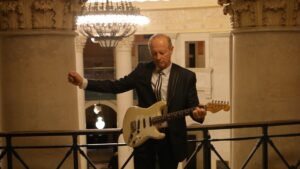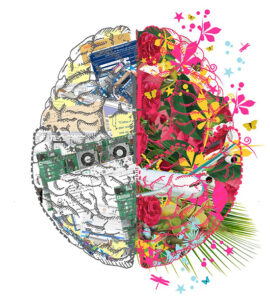Podcast: Play in new window | Download (Duration: 48:12 — 33.1MB)
Subscribe: Apple Podcasts | Spotify | Amazon Music
Learn what the amygdala does and doesn't do, how it's related to memory and consciousness from the best, Dr. Joseph LeDoux. Fun times, sister neuronerds! We are honored to introduce him to you all!

Joseph LeDoux – The Amygdaloids
In the previous episode, we covered how neurobiology affects your relationships to help prepare you for the incredible discussion we had this week with amygdala expert, Dr. Joseph LeDoux. Listen in as we discuss the amygdala, non-conscious versus unconscious, protein synthesis, the differences between fear and threat, and how it all applies in the world of attachment.

“…that's why I always thought of the amygdala as a non-conscious process – because it's generating these behaviors non-consciously. Then cognitively, we interpret that to generate a narrative that makes it make sense in terms of who we are…”
Join our Therapist Uncensored online community as a TU Neuronerd and help support getting this content out to the world.
For deeper dives into topics and extra episodes, join our online community for as little as $5 a month and get deep-dive content, ad-free feed, Ask Me Anything sessions, discounts on anything we produce, and unique study opportunities.
About Joseph LeDoux

Dr. Joseph LaDoux
Dr. Joseph LeDoux –
is a professor at NYU in the Center for Neural Science. He is also the director of the Emotional Brain Institute at NYU and a well-respected author of many books including The Emotional Brain, Synaptic Self, and Anxious. Throughout his career, he has received many awards for his research including the American Psychological Association Distinguished Scientific Contributions Award, and the American Psychological Association Donald O. Hebb Award. In his free time, LeDoux is the lead singer of his band, the Amygdaloids.
Time Stamps for Unpacking the Amygdala
1:05 – Introduction to LeDoux's rat experiment
2:30 – Split-brain patients
6:45 – Story follows state explanation
8:20 – Introduction to the bell curve
12:34 – The relationship between the non-conscious and the unconscious
18:30 – Memory reconsolidation
19:05 – Protein synthesis
26:44 – Taming the Hippocampus
31:30 – Optigenetics
37:52 – LeDoux's tips for emotional regulation
41:26 – Explanation of the new book – “The Deep History of Ourselves: The Four-Billion-Year Story of How We Got Conscious Brains“
Resources
“Anxious: Using the Brain to Understand and Treat Fear and Anxiety” – Dr. Joseph LeDoux
“The Emotional Brain: The Mysterious Underpinnings of Emotional Life” – Dr. Joseph LeDoux
“I Got A Mind to Tell You” – Psychology Today Article
“The Amygdaloids” – Music
Complete List of LeDoux's Books
“Putting the ‘Mental' Back in Mental Disorders” – Research Paper, National Library of Medicine
Relevant Episodes
“Polyvagal Theory in Action – The Practice of Body Regulation With Dr. Stephen Porges” – Therapist Uncensored Podcast, Episode 93
View Episode Transcripts Here













